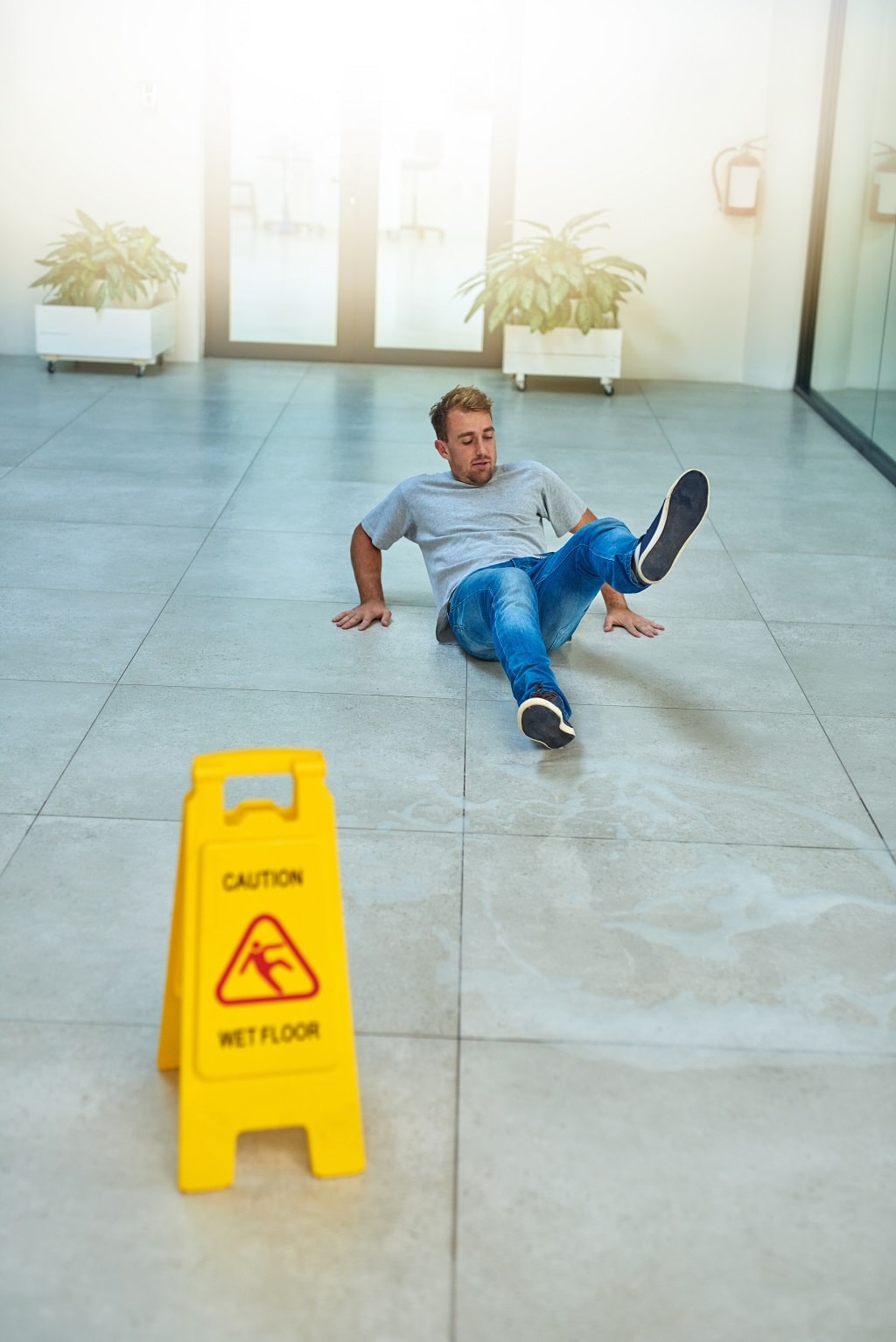
Navigating the Maze: An In-Depth Look at Premises Liability in California
Table of Contents
Premises liability is a legal concept that holds property owners and occupants accountable for accidents and injuries that occur on their property. Understanding this area of law is crucial as it affects a broad range of situations, from slip and fall accidents in a grocery store to accidents in a private home or on public property.
The Impact of Premises Liability Cases in California
In premise liability California cases have a significant impact, affecting both individuals and businesses. They can result in substantial financial settlements or judgments, as well as reforms in safety protocols and policies. Understanding the nuances of California’s premises liability laws can help navigate these complex situations.
Understanding Premises Liability
Defining Premises Liability in the Legal Context
Premises liability refers to a legal principle in personal injury law where the owner or occupier of land or premises is held responsible for injuries suffered by individuals on the property due to a dangerous condition. This can include a wide range of situations, such as slip and fall accidents, inadequate building security, dog bites, and more.
Key Elements of Premises Liability
Three key elements must be present in a premises liability case: the defendant must possess the land or premises, a negligence or other wrongful act must have occurred, and the plaintiff must have suffered injury as a result.
How Premises Liability Differs from General Personal Injury Law
While premises liability is a subset of personal injury law, it differs in that it focuses specifically on injuries that occur on someone else’s property due to unsafe or defective conditions. Personal injury law covers a wider range of situations, including car accidents, medical malpractice, and product liability.
California State Laws on Premises Liability
Outline of California’s Premises Liability Laws
California’s premises liability laws are based on the principle of negligence. To be held legally responsible for injuries that occurred on their property, the owner must have been negligent in maintaining the property or failed to correct a dangerous condition that they knew about, or should have known about.
Unique Aspects of California’s Premises Liability Laws
One unique aspect of California’s premises liability law is the state’s adherence to the doctrine of pure comparative negligence. This means that even if the injured party was partially at fault for their injuries, they could still recover damages, though their compensation will be reduced by their degree of fault.
Impact of Comparative Negligence on Premises Liability in California
The doctrine of comparative negligence often plays a significant role in California premises liability cases. It allows for the apportionment of fault between the parties involved, potentially reducing the liability of the property owner.
Types of Premises Liability Cases
- Slip and Fall Cases
- Swimming Pool Accidents
- Dog Bites and Animal Attacks
- Inadequate Maintenance of Premises
- Inade quate Building Security Leading to Injury or Assault
- Elevator and Escalator Accidents
- Fires and Explosions
- Toxic Fumes or Chemicals
Determining Fault in Premises Liability Cases
Understanding the Role of Duty of Care in Premises Liability
In premises liability cases, the concept of duty of care is paramount. This legal duty requires property owners to maintain their property in a reasonably safe condition for visitors.
Evaluating Reasonable Care: What Does It Mean?
“Reasonable care” in the context of premises liability refers to the actions a prudent person would take under the same circumstances. It involves regular maintenance of the property and timely repairs of any dangerous conditions.
Proving Negligence in a Premises Liability Case
To prove negligence in a premises liability case, the plaintiff must demonstrate that the property owner failed to maintain the property in a reasonably safe condition, that this failure caused the plaintiff’s injury, and that the plaintiff suffered damages as a result.
The Role of Insurance in Premises Liability Cases
How Insurance Coverage Applies to Premises Liability
Insurance plays a significant role in premises liability cases. The property owner’s insurance policy typically covers accidents and injuries that occur on the property, though the coverage varies depending on the terms of the policy.
Navigating Insurance Claims for Premises Liability Cases
Filing an insurance claim in a premises liability case can be a complex process. It requires understanding the policy’s terms, gathering evidence, and negotiating with the insurance company.
What to Do When Insurance is Insufficient
If the insurance coverage is insufficient to cover the damages, the injured party may need to consider other legal options. This could include filing a lawsuit against the property owner or seeking compensation from other potentially responsible parties.
Legal Procedures and Considerations in Premises Liability Cases
Starting a Premises Liability Case: From Filing a Complaint to Discovery
Starting a premises liability case involves several steps, including filing a complaint, serving the defendant, and proceeding with discovery, where each side gathers evidence.
Understanding Damages: How Compensation is Calculated
In a premises liability case, compensation, or “damages,” can include medical expenses, lost wages, pain and suffering, and more. The amount of damages awarded depends on the severity of the injury, the impact on the plaintiff’s life, and other factors.
Settlement vs. Trial: Weighing the Options
In many premises liability cases, the parties may choose to settle out of court. However, if a fair settlement cannot be reached, the case may proceed to trial.
Key Takeaways on Premises Liability in California
Premises liability is a complex area of law, especially in California, where the doctrine of comparative negligence applies. Understanding the key concepts and steps involved in a premises liability case can help individuals navigate these challenging situations.
The Future of Premises Liability: Emerging Trends and Challenges
As societal norms and technologies evolve, so too does premises liability law. Emerging trends include issues related to security cameras, Airbnb rentals, and autonomous cleaning machines, among others.
What Should I Do Immediately After an Accident on Someone Else’s Property?
If you’re injured on someone else’s property, seek immediate medical attention. Document the circumstances of the accident and your injuries as soon as possible. Notify the property owner about the incident and consider contacting an attorney.
How Long Do I Have to File a Premises Liability Claim in California?
In California, you typically have two years from the date of the accident to file a personal injury lawsuit, which includes premises liability cases. However, certain circumstances may alter this timeframe.
What If I am Partially At Fault for the Accident?
California follows a “pure comparative negligence” rule. This means that even if you are partially at fault for your injuries, you can still recover damages. However, your compensation will be reduced by your percentage of fault.
Can I Sue a Government Entity for Premises Liability in California?
Yes, you can sue a government entity for premises liability in California. However, claims against government entities are subject to different rules and shorter time limits, typically six months from the date of the accident.
What Kind of Lawyer Should I Hire for a Premises Liability Case?
It’s advisable to hire a personal injury attorney who specializes in premises liability cases. Such an attorney will have the necessary expertise to navigate the complexities of these cases.
Need Help with Your Premises Liability Claim in California? Contact Us.
Navigating a premises liability claim in California can be a daunting task. The complexities of the legal system combined with the severity of your injuries may make it challenging to receive the compensation you deserve. By enlisting the help of an experienced attorney, you can ensure that your rights are protected and that you receive maximum compensation. Our attorneys have a deep understanding of premises liability laws in California and can guide you through every step of the claims process. Contact us today for a free consultation and take the first step towards securing your future.

